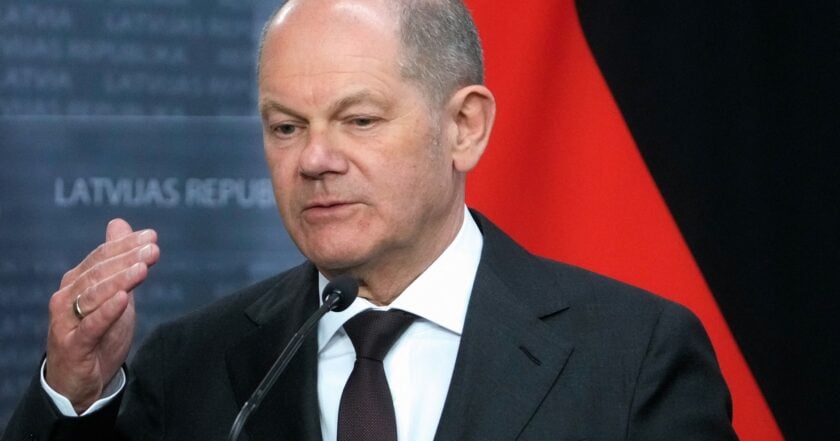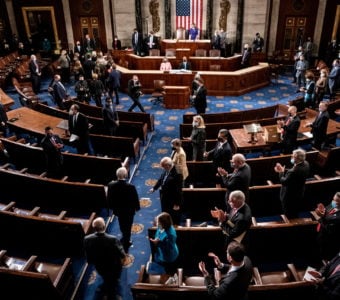Scholz refuses to approve new military aid package to Ukraine despite proposals from foreign and defense ministries – Der Spiegel

Photo: Reuters / Ints Kalnins Purchase Licensing Rights
According to sources cited by Der Spiegel, German Chancellor Olaf Scholz is not in favor of providing Ukraine with a new major aid package despite proposals from the Foreign Ministry and Defense Ministry.
Der Spiegel reported that.
According to Spiegel, the German government, where early elections will soon be held, has been arguing for weeks about additional military aid to Ukraine.
A purported proposal from Foreign Minister Annalena Baerbock of the Greens and Defense Minister Boris Pistorius, a member of Scholz's SPD party, has emerged to allocate an extra 3 billion euros to secure the necessary arms for Ukraine before the early elections on February 23.
The contents of the package were compiled in accordance with the request of the Ukrainian side. It mentioned (but it is not known whether the German side was ready to provide all of this) about:
- three more IRIS-T batteries and interceptor missiles for their operation,
- additional interceptors for Patriot,
- ten self-propelled howitzers,
- artillery ammunition.
According to Pistorius and Baerbock, this would signal to Ukraine that German aid would not decrease.
The ministers proposed that the government seek approval from the Bundestag's budget committee for an extraordinary expenditure, as this mechanism has been utilized in the past. They argue that Ukraine's urgent needs were not predicted during the earlier planning stages. They highlight the challenging situation on the eastern front, where the Russians are gaining ground, and the uncertainty surrounding future American aid with Donald Trump's return to the White House.
However, since January, work on preparing the package has stalled, as signals have come from Scholz's office that he is against such additional spending.
According to Spiegel, Scholz disagrees by saying that they do not perceive a pressing requirement for this package and trust that the existing assistance will suffice in the near future. They also do not want to make the country's new government, which will be formed in the spring, "face the fact" [of the aid's provision – ed.].
The preliminary budget for 2025 provides for 4 billion euros for military aid. They also expect that Ukraine will be able to use a $50 billion loan from the G7, financed using income from frozen Russian assets.
It is impossible to approve a new aid package without Scholz's consent. The SPD privately says that the Chancellor's real motives are related to the elections – Scholz fears that this step will not please some voters who are still hesitant to vote for the SPD. At the same time, the Greens, on the contrary, are counting on gaining political points by advocating for increased defense spending and active support for Ukraine.
Both ministries did not want to comment on this information officially.
It should be noted that at the end of December 2024, Germany transferred a large aid package to Ukraine with IRIS-T and Patriot.
For reference:
Since the start of the full-scale war, Germany has become the largest supplier of military assistance to Ukraine among European countries. In particular, Berlin has transferred:
- Patriot air defense systems,
- Leopard 2 tanks,
- PzH 2000 self-propelled guns and other weapons to support the Ukrainian military.
There is also an agreement with Germany to reinforce air defense immediately. The deal includes arrangements where the participating countries will contribute to collaborative projects or fund their initiatives to enhance the air defense capabilities of Ukraine's armed forces.
Thus, the sixth of the planned IRIS-T air defense systems from Germany will arrive in Ukraine by the end of this year.


















































